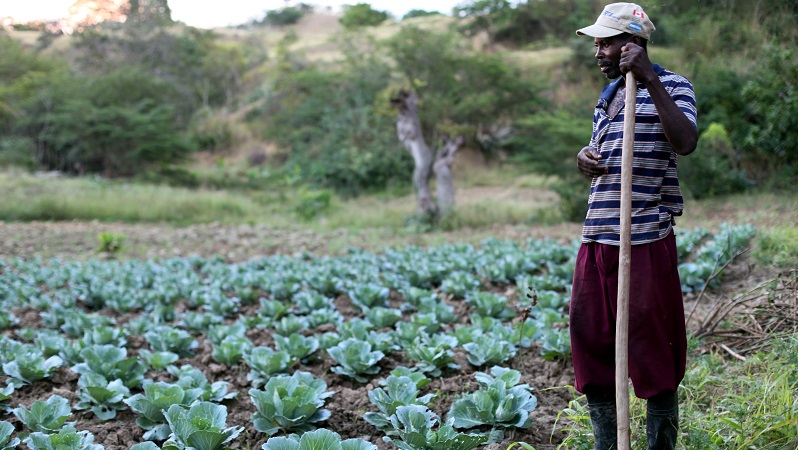The global Covid-19, or coronavirus, pandemic brings the climate crisis into sharp focus.
As we see confirmed cases grow exponentially, grocery stores run out of food, and economies falter, it is an opportunity to understand what so many Indigenous communities have understood from time immemorial: we are all connected.
Our economies, our human relationships, and our germs have very few degrees of separation. Practicing altruistic interdependence in this pandemic moment – and this ecological moment – might just be what can support life and living.
The climate crisis is increasing the prevalence and spread of disease, which disproportionately impacts the poor. Likewise, Covid-19 is kicking off an economic downturn and disproportionately impacting those without insurance or access to health care, amplifying the impact of the climate crisis on marginalised communities.
Covid-19 makes everyone more vulnerable to the accelerating effects of the climate crisis. The climate crisis is a threat multiplier, as is the coronavirus.
An economic downturn, coupled with xenophobia and layoffs, will accelerate the social impacts of what is heading towards the hottest year on record. We need to examine patterns of power and access to services—from who is suffering to who gets tested and treated to who is making the decisions.
The pandemic is and will have much greater impacts on those already bearing the greatest brunt of climate change.
Governments urged to attach green strings to long-term coronavirus recovery plans
Who are those that will bear the greatest burden of this pandemic? The same people who are most vulnerable to the effects of the climate crisis: low-income, houseless, undocumented, or disabled peoples who experience systematic discrimination from healthcare systems. Migrants and refugees experiencing greater xenophobia and deportation will suffer. Incarcerated folks, already climate stressed, will suffer great risk of infection.
The pandemic brings the injustice of our economies and culture into acute relief: from increased slave labour in Hong Kong prisons due to a depressed workforce, to the woeful treatment of migrants. It highlights how the ecological crisis compromises public health, from those without clean drinking water to wash their hands to those with poor respiratory health because of pollution.
Near my hometown of Seattle, a motel converted into a quarantine site is in a low-income community that was not consulted about the decision, just like those same communities have experienced with extractive industries the world over.
For both the climate crisis and coronavirus, the same people will benefit: those at the helm of disaster capitalism. We are already seeing this with the proposed stimulus package in the US bailing out the highest emitting companies and devastating social security.
The climate crisis consolidates power, both by who can and who cannot adapt and who receives the resources to respond.
Coronavirus slows developing nations’ plans to step up climate action in 2020
Our energy system, alongside many countries’ healthy systems, are designed for profit, rather than well-being. As the tell-tale signs of disaster capitalism appear in the wake of pandemic fear (e.g., mask and sanitiser price hikes and medicine scams), we can learn from communities like those in Puerto Rico choosing community care over corporate credos.
The coronavirus pandemic shows us that we can change our ways, and quickly. Millions are learning new ways to work remotely, collaborate across sectors, or provide healthcare in ways previously touted as impossible. The coronavirus is the best case for universal healthcare worldwide and climate justice solutions that promote community cohesion.
Grassroots climate justice movements are building the political power and self-determination of communities worldwide, which makes them better equipped to handle these kinds of crises. Greater community sovereignty means fewer people are displaced and made more vulnerable to disease, and more people can sustain collective health in place.
Coronavirus and climate change are two crises that need humanity to unite
For example, in Northern California after the last few years of deadly fires, long-running climate justice community groups have built strong response networks. Mutual aid for those with disabilities, the elderly, and the houseless are now being activated in the midst of the Covid-19 pandemic.
Just like many catastrophic climate impacts, it is not a question of if pandemics will occur, but a matter of when. We are at an inflection point. How will we respond? In our fear-based state, will we hoard and exclude? Or will we embrace our interdependence and choose collective action?
Maybe this is Earth’s wake-up call. The coronavirus is exposing our dysfunctional leadership and sparking new ways of caring for each other and the planet.
Perhaps we can refocus on collective care, cooperation, and community. Whatever unfolds, the best investment we can make is in the communities already fiercely protecting the health of the Earth and her peoples.
Lindley Mease is the director of the CLIMA Fund, which resources grassroots climate justice movements across the globe.
